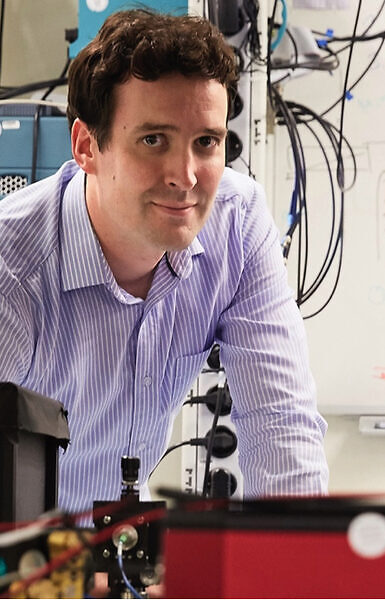Quantum networks based on diamond spin qubits - Prof T Taminiau [QUTech]

Date
Description
Quantum networks based on diamond spin qubits
Thursday April 20, 4pm in Lab 3 A719
Abstract: Spins associated to optically active defects in diamond provide a promising platform for quantum networks and distributed quantum simulations and computations [1-5]. The defect electron spin can be detected, prepared and measured optically and can be used to create entangled states over long distances [2]. Furthermore, the electron spin can be used to detect and control nuclear spins in its environment, which provide additional quantum bits [1].
In this talk, I will discuss our recent progress in controlling such electron-nuclear spin systems for quantum networks and for distributed quantum computations and simulations. In particular, I will show that we can image systems with up to 50 nuclear spins with atomic-scale resolution [4,6], and I will discuss how these spins can be used as simulators of many-body physics [4] and as quantum bits for quantum networks and distributed quantum computation [5].
[1] C. E. Bradley et al., Phys. Rev. X. 9, 031045 (2019)
[2] M. Pompili et al., Science 372, 259 (2021)
[3] M. H. Abobeih et al., Nature 576, 411 (2019)
[4] J. Randall et al., Science 374, 1474 (2021)
[5] M. H. Abobeih et al. Nature 606, 884 (2022)
[6] G. van de stolpe et al., in preparation
Biography
Tim Taminiau is a PI at QuTech and the Kavli Institute of Nanoscience at the Delft University of Technology. His group uses solid-state defect spins to investigate the fundamentals of quantum information and the physics of coupled spin systems. He graduated from the University of Twente in 2005 and obtained a PhD at the Institut de Ciències Fotòniques (ICFO) in Barcelona. Before returning to the Netherlands as a Marie Curie fellow in 2011, Tim investigated optically active defects at the California Institute of Technology and Brown University. Tim was awarded an ERC starting grant and the Dutch Veni and Vidi career grants. In 2015, he was awarded the Fresnel prize for fundamental contributions to quantum optics and electronics.
Subscribe to the OIST Calendar: Right-click to download, then open in your calendar application.



